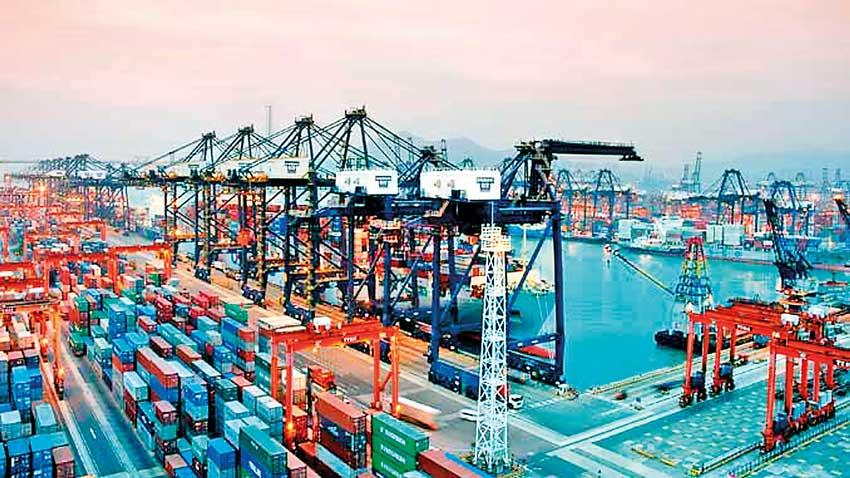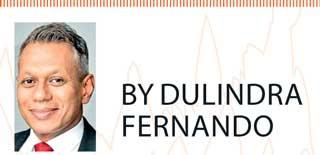04 Aug 2022 - {{hitsCtrl.values.hits}}

 Ranil Wickremesinghe, who rescued Sri Lanka’s economy from recession as Prime Minister in 2002, is back, now as Executive President. This time around, his challenge is far greater.
Ranil Wickremesinghe, who rescued Sri Lanka’s economy from recession as Prime Minister in 2002, is back, now as Executive President. This time around, his challenge is far greater.
Wickremesinghe has taken office with supplies of fuel and electricity scarce due to the country’s lack of foreign exchange and with inflation raging at 75 percent. The Sri Lankan rupee has plunged from 203 to the dollar at the start of the year to around 360.
In May, the government defaulted on its international debts. The Asian Development Bank expects the economy to contract 7.2 percent
this year.
Some of the protesters who ousted Gotabaya Rajapaksa from presidency last month are equally wary of Wickremesinghe, a longtime ally. His private residence was attacked and burned last month when he was Prime Minister, and now that he is President, a section of the protesters are demanding
his resignation.
On top of the worst domestic situation since Sri Lanka gained independence in 1948, the government is seeking to escape bankruptcy at a time when the global economic environment is souring. Between the war in Ukraine and the increasingly dire situation in the larger South Asian states of Pakistan and Bangladesh, Colombo will be challenged to hold the world’s attention on its plight.
Wickremesinghe is expected to announce his economic strategy soon. Talks on a support package from the International Monetary Fund are said to be progressing well, and the government aims to present a plan to restructure its debts later this month in hopes of winning consent from
its creditors.
Hopeful signs
Some hopeful signs are emerging. Prices for Sri Lanka’s international sovereign bonds rose around 24 percent over the rest of July following Wickremesinghe’s appointment. With a boost from the weakened rupee, the country in June reported its first monthly trade surplus in 20 years as export earnings rose 24 percent from a year earlier.
In part due to Wickremesinghe’s declaration of a new state of emergency, protest ranks have thinned considerably. Most seem willing to give him a chance to leverage his strong relationships with the West, Japan and India and test his willingness to work with a
unity government.
Yet, Sri Lanka is hardly out of the woods. A key risk, observed by scholars such as U.S.Federal Reserve economists Jahyeong Koo and Sherry L. Kiser in their study of South Korea’s recovery from the Asian financial crisis, is that a currency crisis could also become a
banking crisis.
Preventing further instability
With Sri Lankan banks under stress from debt moratoriums and losses on foreign exchange positions, the government should be acting to prevent further instability.
Many domestic banks have considerable holdings of both rupee- and dollar-denominated government bonds. To protect their interests during the government’s debt restructuring, the authorities should consider extending the term of all its offshore bonds coming due through 2025 by a decade and postpone coupon payments by three years rather than impose a cut in the principal due for repayment.
Another measure that would help would be a cut in the banks’ taxes. The government could also offer strategic stakes in state-owned Bank of Ceylon and Peoples Bank to international development finance companies such as the World Bank’s International Finance Corp., as well as list shares on the local
stock market.
The government should also look to sell shares of profitable state companies such as Sri Lanka Insurance and the Sri Lanka Ports Authority on the Colombo Stock Exchange to draw foreign capital. The re-privatization of SriLankan Airlines should be another priority.
To address the energy crisis, officials should liberalize fuel retailing, liquefied petroleum gas distribution and the supply of aviation fuel. Letting in foreign companies that can source supplies abroad should help to alleviate local shortages.
Other state organizations should also be scrutinized. The Ceylon Electricity Board could be restructured to separate power transmission and distribution from power generation.
Foreign investment could then supply some of the capital needed to expand the country’s solar and wind power generation. With Ceylon Petroleum and Sri Lanka Railways, the authorities should look at slashing subsidies, reducing overstaffing by restructuring operations and better aligning pricing with market demand.
Lessons from East Asia
Government officials should dig further into how East Asian nations were able to recover so quickly from their 1997-1998 financial crisis. One study by Lee Jong-wha and Park Young-chul, both of Korea University, showed that the hardest-hit nations managed to return to precrisis economic output levels in just two to three years, with recovery quicker for those getting IMF help.
“We find that the quick recoveries in East Asia have been largely driven by the accommodating macroeconomic policies, favorable external environments, and more export-oriented structure,” Lee and Park wrote.
While Sri Lanka cannot count on a favourable external environment, it can improve its economic policies and lean on its export sector. Tourism, a key source of foreign exchange before the COVID-19 pandemic and the Ukraine war, is expected to start contributing again by year-end as conditions stabilize.
A return to stability could also convince foreign capital to leap on the opportunity that Sri Lanka’s high interest rates and depressed
valuations provide.
Rupee-denominated government treasury bills are generating short-term yields of 30 percent. Approval of a debt restructuring agreement should see global rating agencies upgrade the country’s international debt from default, with its heavily discounted sovereign bonds then getting a lift.
Beachfront villas, which have fallen about 50 percent in price in dollar terms amid the country’s meltdown, seem also likely then to lure investors seeking high returns. As the old market adage goes, “The most money in investment is usually made when a country’s situation goes from terribly bad to just bad.”
(This article was originally published in Nikkei Asia)
(The writer is Managing Director of Ceylon Asset Management in Colombo)
23 Dec 2024 49 minute ago
23 Dec 2024 1 hours ago
23 Dec 2024 1 hours ago
23 Dec 2024 2 hours ago
23 Dec 2024 2 hours ago